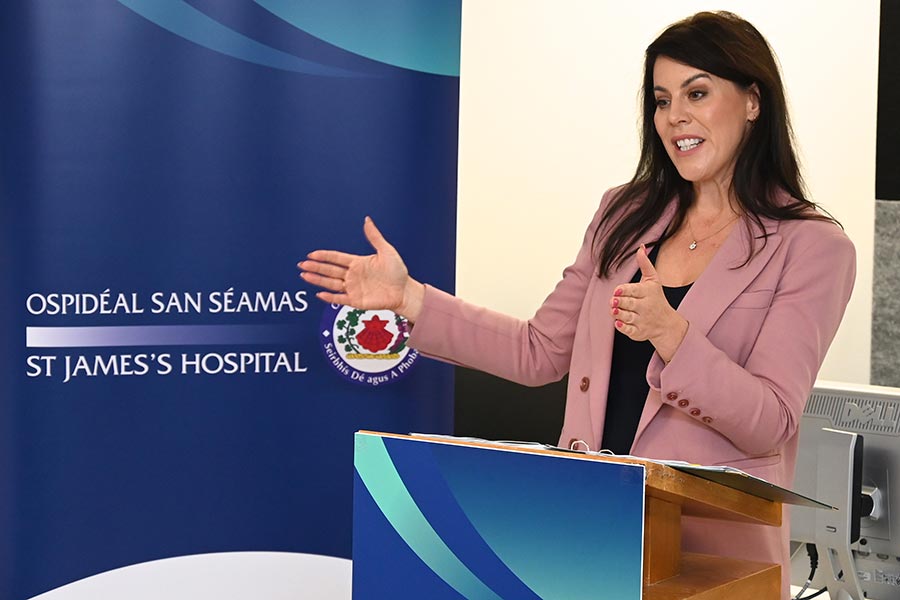How Tim Jones and SymPhysis Medical Are Quietly Revolutionizing Healthcare — And What It Means for Investors Ready to Strike Gold
Ever wonder what it really means to lead by example? Tim Jones of SymPhysis Medical doesn’t just talk the talk—he’s all in, sleeves rolled up from day one. Growing up inspired by entrepreneurial grandparents who valued community as much as commerce, Tim’s leadership style is as much about showing up and getting involved as it is about strategy. From admiring big-name leaders like Barack Obama to learning invaluable lessons in empathy and decision-making, he’s crafted a style that’s open, challenging, and endlessly collaborative. In a fast-paced world where every decision counts and every win should be savored—even if only briefly—it’s clear that for Tim, the journey is as vital as the destination. Curious about how he navigates the rollercoaster of startup life, tough decisions, and a vision for a lasting legacy in med tech? Dive into Tim’s story and discover what it truly takes to lead from the front. LEARN MORE
“My personal style is leading by example. It’s something I’ve been doing right from the get-go. So I’ll roll my sleeves up and get involved” – Tim Jones, SymPhysis Medical
Who or what has most influenced your leadership style?
Both of my grandparents were entrepreneurs. Hearing about them through my family instilled in me the expectations of what a leader should be.
They were both very much community people, not just building the business, but being a part of the community as well.
My personal style is leading by example. It’s very much something that I’ve been doing right from the get-go. So I’ll roll my sleeves up and get involved.
Which leaders do you admire?
Going back to my granddad, I definitely would have admired the stories that I heard about him and that sank into me at a really young age.
It’s maybe on the cliché side of things, [but] there’s [also] people like Barack Obama who are just incredible leaders.
You see someone who spends time working on a complex problem, you can see that the thinking has gone into it and the decision-making is based on articulation and well thought-out planning and the communication.
And then within our own space, John Power, who’s the chief executive of Aerogen, which is the largest indigenous medical device company in Ireland.
He presented to us as a group on BioInnovate early in our programme.
Hearing his story, the challenges that he went through and the sacrifices that he made to build the company, hearing about his strong family values, his passion for the business — those are things that really have driven me on in my role.
Meeting with him every so often really does spur me on to kind of emulate some of the stuff that he’s done with Aerogen, which is very impressive.
How would you describe your leadership style in three words?
Open, challenging and collaborative.
What’s the best leadership advice you’ve ever received?
“It’s not personal.” It’s the most simple thing that you can hear and you don’t really know what it means until you’ve been in business for a while.
Even today in interactions, you see people really getting so emotional on something [because] they can’t see the wood for the trees and it affects your ability to work through a challenge.
So that’s something that I very much took on board.
And it’s not to say that I am not emotional. I feel like I’m an empathetic leader as well, but I feel like I can park that piece to ensure that we come to a good conclusion on discussions, rather than allow that emotional side or that personal side of things to really affect your business decision-making.
What’s your approach to making tough decisions, especially under pressure?
Well, for me, staying on top of the business and understanding everything that’s happening enables me to make quick decisions.
So at this point in time, because we’re a relatively small team, I stay abreast of all the operations. I ask my team questions regularly.
I sit down with individuals, one to one, and I ensure that I understand the core of everything that’s happening within the operations and the development of the device.
So with that, when I’m faced with a specific challenge, I’m then able to process that pretty quickly and make what is evidently the best decision at that point in time.
Ultimately, you don’t know if it’s the right decision, but you have to make a decision based on all the information you have at the time.
What are the biggest opportunities and challenges facing the company in the current business landscape?
There’s lots of opportunities to bring in grant funding.
We’re in an incredible ecosystem in Ireland where we have opportunities for grant funding.
With Enterprise Ireland, there’s grant funding in Europe and the US.
All of them are there to help develop a company that is able to stand on its own two feet and get beyond the development phase and get into the growth phase and build a strong commercial plan that will ultimately get you cash positive.
So there’s a lot of opportunities there.
What’s been your proudest moment or achievement at the business so far?
One thing we don’t do is celebrate the wins enough. It’s always just ‘on to the next thing’. It’s such a fast-paced environment.
But earlier this year, we won the Patient Impact Award at the Life Science Industry Awards.
That was really meaningful for us, because obviously we have an under-met clinical need that we’re trying to address for these patients.

What advice would you give to other SME leaders navigating uncertain economic conditions?
For me, the end goal of having a device that is going to treat a massive patient population is a huge driver for me to put all of my efforts into it.
But if that was the only thing, it would be a very big challenge to get through all the day to day in order to deliver on an end point.
So setting up the journey in order for it to be enjoyable, enriching and something that is going to build value outside of what just the end point is, has been important for me.
Right from the get-go, we don’t just build the device and aim to have that ready at the end.
We talk to our clinicians regularly and ask them, what else can we do to help your team?
Can we in any way, perhaps, in our specific space, help to build a plural unit with you?
So it is a cliché, but it’s not just the destination.
The journey is the key part of driving a start up, in my opinion.
What legacy do you hope to leave at SymPhysis Medical?
I think we’re far from legacy talk right now, but for me [it’s] if in ten years’ time we’ve built a med tech company that isn’t just delivering on our promise of treating these patients with late-stage cancer, but we’ve built future products that are complementary and expanded in different areas that we’ve built.
A team that have personally developed, have enjoyed their journey, have then developed others.
And we’ve grown into a sustainable indigenous business in Ireland that is contributing to the ecosystem in med tech and to the general business community.
That would be something that would make me very proud.



















Post Comment